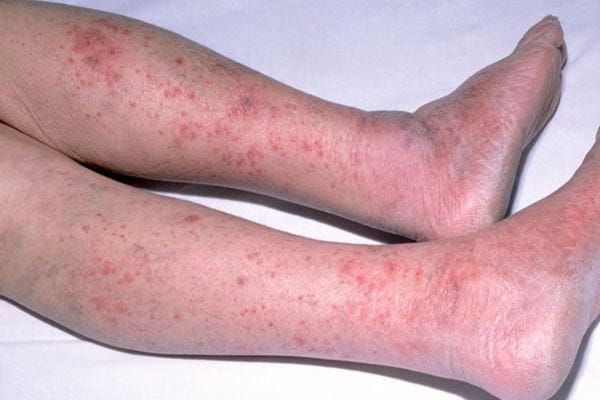What is meningitis?
Meningitis - viral meningitis and bacterial meningitis
Meningitis is a serious disease that can affect people of any age, from babies and toddlers to adults and the elderly. Most meningitis is caused by bacteria and viruses that usually live quite innocuously in the intestines or in the nose and throat. But if they spread to the tissues (meninges) that surround the brain and spinal cord, they become a threat to health.
Viral meningitis
Viral meningitis usually affects babies and toddlers. Most will make a full recovery if the symptoms are spotted early enough for treatment.
Bacterial meningitis (meningitis B)
Meningitis B can also cause potentially life-threatening blood poisoning (septicaemia) and requires urgent medical treatment. Meningitis B is caused by the bacteria, Neisseria meningitidis Group B and this particular bacterium is responsible for 80% of cases of bacterial meningitis in the UK.
Although the disease can affect any age group, the incidence of Meningitis B is highest in children under five years of age, especially those under 12 months old. A second peak in incidence of meningitis B occurs in teenagers between 15 to 19 years of age.
It is estimated one in ten cases of bacterial meningitis is fatal.
Meningococcal W (Men W) disease
Meningococcal W disease is particularly virulent and was prevalent among students before the MenACWY vaccination programme was introduced in 2015. The vaccine not only protects those who are vaccinated, but also helps control the spread of the disease amongst the wider population.
Meningitis and septicaemia
Meningitis and the potentially fatal septicaemia often happen together, so it is crucial to spot the signs of the condition as soon as possible in order for people affected by the disease to stand the best chance of recovery. You should get medical advice straight away by calling your GP surgery, NHS 111 or 999 or getting to your nearest accident and emergency (A&E) department if you're concerned about yourself or your child.
What are the symptoms of meningitis?
Blotchy rash
The classic meningitis symptom, and probably best known, is a blotchy rash that doesn't fade when a glass is rolled over it. However, this rash may not appear in many cases and isn’t the sole clinical symptom. Several symptoms can appear in any order and if someone appears ill and displays some of the other symptoms described, but shows no signs of a rash, you should still get medical help immediately.
Whatever the symptoms, someone with meningitis or septicaemia can get a lot worse very quickly. It is important to trust your instincts (particularly as a parent). Keep checking them and seek urgent medical attention as soon as possible.
Meningitis rash
The rash usually looks like small, red pinpricks at first. It then spreads over the body quickly and turns into red or purple blotches. If you press the side of a clear glass firmly against the skin and the rash doesn't fade, it's a sign of blood poisoning (septicaemia) caused by meningitis and you should get medical advice right away.
The rash can be harder to see on darker skin, so you should check for spots on paler areas like the palms of the hands, soles of the feet, the stomach, inside the eyelids and the roof of the mouth.
Other symptoms of meningitis in children and adults
In children and adults, meningitis can have a number of other symptoms:
- High temperature (fever) of 38C (100.4F) or above
- Feeling and being sick
- Irritability and a lack of energy
- Headache
- Aching muscles and joints
- Breathing quickly
- Cold hands and feet
- Pale, mottled skin
- Stiff neck
- Dislike of bright lights (photophobia)
- Drowsiness
- Fits (seizures)
Other symptoms of meningitis in babies and toddlers
Common signs and symptoms of meningitis and septicaemia in babies and toddlers include:
- A fever or cold hands and feet
- Refusing feeds or vomiting
- Being unusually fretful and showing a dislike of being handled or picked up
- A bulging soft spot on the infant’s head (the fontanelle)
- Toddler complaining about a stiff neck
- Infant or child is drowsy, floppy or unresponsive
- Rapid breathing or grunting
- Crying more than usual or having an unusual high-pitched cry
- Having a stiff body
Vaccination
The NHS started offering the new meningitis vaccine to babies as part of its childhood inoculation program in September 2016.
The vaccine for meningitis B is available free on the NHS for babies aged eight weeks, followed by a second dose at 16 weeks and a booster at one year. Children beyond that age are presently too old to qualify for the NHS vaccination, but parents who want their toddlers vaccinated can buy the vaccine privately.
More information on meningitis
More useful information and guidance about the disease and the symptoms of meningitis can be found on the NHS Choices website.
Disclaimer
This information is for educational purposes only and does not constitute legal advice. It is recommended that specific professional advice is sought before acting on any of the information given. © Shoosmiths LLP 2025


















